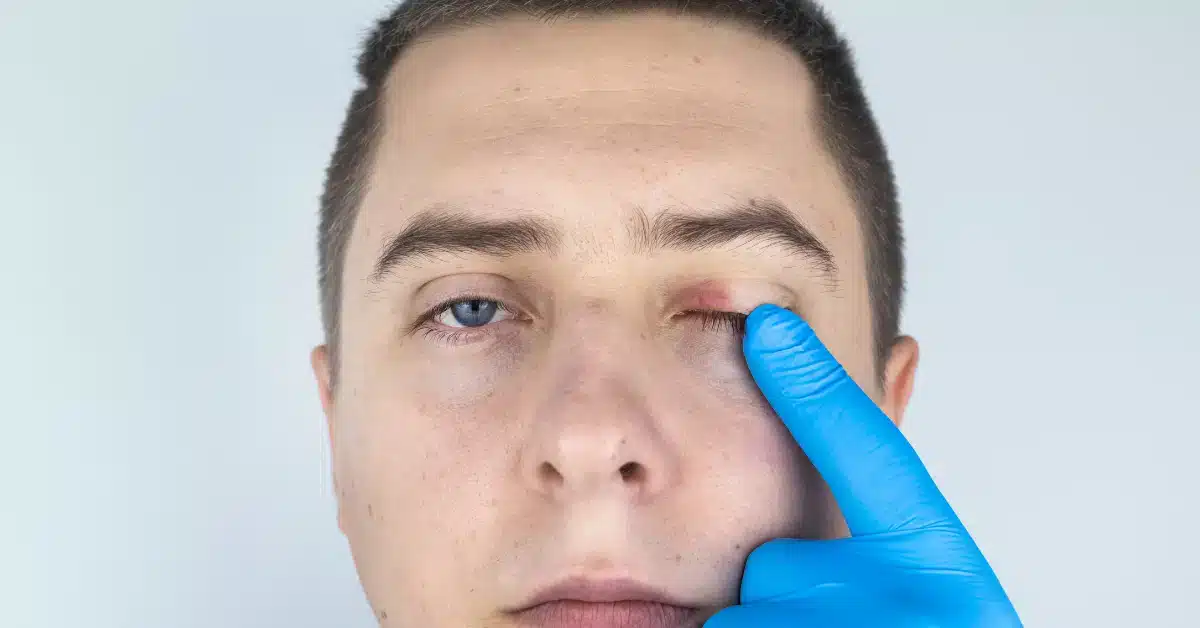Medicine for Swollen Eyelids: A Comprehensive Guide
The eyelid is a fully functioning and complex skin tissue.
It consists of the eyelashes and sebaceous, sweat and tear glands.
Inflammatory reactions in these tissues lead to swollen eyelids.
A swollen eyelid is not a condition, but a symptom.
It is a common symptom and usually develops due to injury, inflammation, infection, or allergy.
There are several medicines for swollen eyelids available.
Make sure to inform your doctor about the symptom.
They can prescribe the proper medications as per the cause.
Medicine for Swollen Eyelid
The medicines for swollen eyelids depend on the cause.
In case you have developed an eye infection, doctors may recommend using an,
- Ointment
- Antibiotic eye drops, or
- Other topical medication
Applying a topical medication to the body may help remove the infection and ease your symptoms.
If the topical treatment is ineffective, your doctor might recommend antibiotics.
To cut eyelids’ swelling and clear them, you can consider taking some medications.
Yet, consult your doctor before taking any medicines for swollen eyelids.
Eye drops

If you get blurry vision, the doctor may recommend using a vasoconstrictor eye drop like
- Visine
- Tetrahydrozoline
- Azithral eye drop 3ml
These eye drops are long-lasting.
The recommended dosage is one drop every eight to 12 hours for one to two days.
Antibiotics
Antibiotics are medications used to treat bacterial infections.
These could kill the bacteria or make it hard for them to grow, survive, and multiply.
Your healthcare provider may recommend Antibiotic ointments for Swollen Eyes.
These consist of Polysporin, Bimatoprost Ophthalmic Solution, and Azithromycin for your swollen eye.
Some antibiotic eye drops consist of a combination of Trimethoprim and Polymyxin B.
Antibiotics help in reducing irritation and resolving bacterial infections.
In severe cases, oral antibiotics like Azithromycin and Doxycycline may be recommended.
Anti-inflammatories
These medications block the production of certain body chemicals responsible for inflammation.
These could be categorized as either Corticosteroids or Non-Steroidal Anti-inflammatory Drugs (NSAIDs).
These can minimize the function and number of inflammatory cells.
They can also inhibit chemical mediators of inflammation.
Doctors may also recommend Milflox 0.5% 5 ml to treat bacterial eye infections.
Over-the-counter (OTC) medications

Over-the-counter medications can help you relieve the eyes in case of swelling.
However, you can ask your doctor before taking these medications.
Antihistamines could either be available with or without a prescription.
OTC Antihistamines include the following medications
- Clemastine (Tavist)
- Diphenhydramine (Benadryl)
- Brompheniramine (Dimetane)
Artificial Tears
These are specialized medicines for swollen eyelids.
They help in reducing the irritation and dryness in the eyes.
Artificial tear medicines, like Eyemist E/D 10ml, contain
- Polysorbates
- Glycerine, and
- Other essential ingredients
This medication is also available in the form of drops and ointment.
For Artificial Tear drops,
- Use 1 to 2 drops in the swollen eye
- Close your eyes, look up, and try to rotate your for 1 to 2 minutes
- For Gel application, squeeze the tube and place the gel over the eye
- Gently close your eyes and repeat the rolling process in all possible directions
It will reduce inflammation and dryness of your eyes.
Also Read: Home remedies along with medications are effective for swollen eye. To know more about them, read our article “Remedies for Swollen Eyelid: Safe and Effective Solutions“.
How do I use medications correctly?
When you are taking antibiotics, make sure to consult your doctor.
They will let you know about all possible interactions
- Complete the course prescribed by your doctor, even if you feel better
- If you stop taking the medicines, the left out bacteria might infect you
- Avoid storing antibiotics for future usage
- Don’t share your Antibiotic with others
- Avoid blind intake of antibiotics prescribed for someone else
- This might delay your treatment, make you even sicker, or cause side effects
When to see a doctor
In general, the swelling of the eyelid goes away within the first 24 hours of occurrence.
If it persists over a period of 48 hours, get in touch with your healthcare provider.
Your doctor will examine you and find the reason for this condition.
They can even advise specific lifestyle changes to treat it.
If the condition persists, your doctor will consider your medical history.
Conclusion
If you are waiting for an appointment, try non-prescription eye drops.
Those will help you relieve your signs and symptoms for some time.
You can also look out for artificial tears; these can lubricate your eyes.
Avoid those medicines for swollen eyelids that claim to reduce redness and swelling.
These medications might cause more eye irritation.
Frequently Asked Questions
What medicine to take for swollen eyelids?
Benadryl is considered the best medicine for swollen eyes. It is usually taken every six hours for the best results. Your doctor might recommend taking antihistamines to reduce swelling. Antihistamines block the effects of histamines, which are responsible for swelling.
What are the best remedies to get rid of a swollen upper eyelid?
Some best remedies for swollen eyes include regular washing and avoiding frequent touching of the affected eye. You can apply a warm compress several times a day for 10-15 minutes each.
How long does it take Benadryl to reduce swelling?
Benadryl is a quick-absorbing tablet. You might notice the effects within the first 20 to 30 minutes.
WowRx uses only high-quality sources while writing our articles. Please read our content information policy to know more about how we keep our content reliable and trustworthy.






